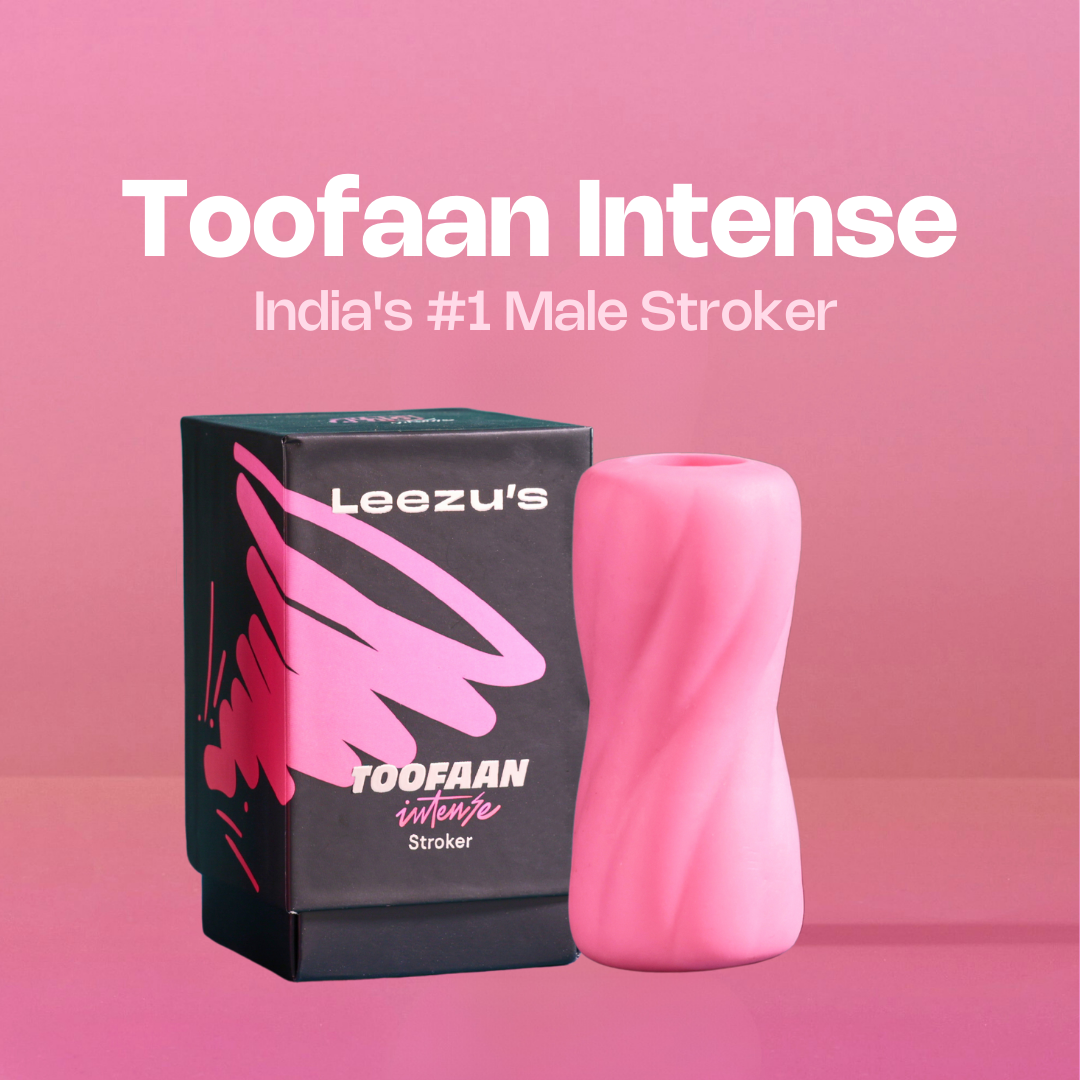Pain during sex is quite common, medically known as dyspareunia. It can affect anyone, regardless of gender or sexual orientation, but it is more commonly reported in women. According to a survey, 54% of women reported experiencing some level of pain during intercourse.
However, this doesn’t mean you should ignore it. Sex is meant to be a source of pleasure and connection, and if you are experiencing discomfort, there are ways to alleviate it. Let’s explore the reasons behind dyspareunia and how to manage it in detail.
Understanding Vaginal Pain During Sexual Intercourse
Painful intercourse could be a result of a plethora of factors such as:
-
Vaginal Dryness
Vaginal dryness is common and can cause discomfort during sex, often resulting in a burning sensation or irritation during and after intercourse. However, it is rarely a cause for alarm, as nearly every woman experiences it at some point in her life. Dryness can occur due to low estrogen levels, which typically happen during menopause.
In most cases, using lubricants can relieve pain during intercourse and enhance pleasure. Choose a water-based lubricant specifically formulated for vaginal use and free from perfumes, herbal extracts, or artificial colors, as these additives can potentially cause irritation.
However, if dryness persists for several days or if you experience extreme pain during intercourse, seek medical help.
-
Injuries, Infection and Irritation
Injuries or irritations resulting from accidents, pelvic surgeries, or episiotomies (cuts made during childbirth) can lead to discomfort during intercourse. These events may cause scar tissue formation or nerve damage, which can make penetration painful or difficult. Furthermore, inflammations such as vaginitis or conditions like endometriosis can contribute to discomfort during sexual activity.
Infections such as urinary tract infections (UTIs), yeast infections, or sexually transmitted infections (STIs) in the genital area can also significantly impact sexual well-being, causing pain, burning sensations, or itching. It's important to address these underlying issues with appropriate medical care to improve sexual comfort and overall well-being.
-
Vaginismus
Vaginismus is a condition where the muscles around the vaginal opening involuntarily spasm or tighten when penetration is attempted. This can make intercourse painful or even impossible. It is often associated with psychological factors such as anxiety or fear of pain. Treatment usually involves pelvic floor exercises, counseling, and sometimes the use of vaginal dilators to help relax the muscles and alleviate symptoms.
Note: Many people use the terms dyspareunia and vaginismus interchangeably or confuse them. While both conditions can involve pain during sex, vaginismus specifically involves involuntary muscle spasms, whereas dyspareunia encompasses a broader range of potential causes of sexual pain. Therefore, although they may coexist or share symptoms, they are distinct conditions that require different approaches for diagnosis and treatment.
-
The Emotional Roller Coaster
Not just physical, the emotional side of painful intercourse is important to consider. Issues like anxiety, stress, depression, body image worries, fear of intimacy, and relationship problems can all make sex painful. These feelings can tighten the pelvic floor muscles, making discomfort worse during intercourse.
Moreover, fearing the pain can create a cycle where anxiety about discomfort tightens the muscles even more. This can lead to avoiding sex altogether as a way to manage the pain. Addressing these emotional factors is crucial for improving sexual well-being.
6 Ways To Tackle Pelvic Pain During Sex
Treating pain during sex focuses on addressing the root cause. These could be some effective treatments:
-
Counseling
Counseling can help if sexual abuse, trauma, or emotional issues are the root cause. Even if there is no psychological cause, counseling helps manage emotional distress. You could even try out couples therapy to improve communication if painful intercourse is affecting the relationship.
-
Choosing The Right Medication
Medication plays a crucial role in treating infections or medical conditions that contribute to pain during intercourse. For instance, antibiotics are commonly prescribed to treat urinary tract infections (UTIs) or other bacterial infections in the genital area. Antifungal medications can help manage yeast infections, which can also cause discomfort.
Note: Some medications can lead to vaginal dryness— like antihistamines, antidepressants, or hormonal treatment. If you experience such side effects, you should switch to alternative medications or adjust the dosage.
-
Desensitization Therapy
You can try out different relaxation techniques such as yoga and meditation to relax vaginal muscles and reduce pelvic pain during sex. Kegel exercises can also be super helpful in managing vaginismus. A simple way to do so is to stop urination midstream to find the right muscles. Squeeze for 10 seconds and then relax for 10 seconds. Repeat this three times a day.
-
Foreplay & Lubricants
Water-based lubricants help in reducing friction and maintaining comfort during intercourse. In addition to using lubricants, engaging in extended foreplay can enhance arousal and stimulate natural lubrication.
You can also try less painful sex positions to minimise the pain and feel relaxed and in control. Positions like woman-on-top (cowgirl) or side-by-side are often preferred as they can reduce discomfort and increase pleasure.
-
Maintaining Sexual Hygiene
Maintaining good hygiene practices, such as regularly washing the genital area with mild soap and water, can prevent infections that can cause dyspareunia. Proper hygiene helps reduce the risk of bacterial or fungal overgrowth that can cause discomfort or irritation.
Practicing safe sex is another important aspect of managing dyspareunia symptoms. Consistently using condoms during intercourse helps protect against sexually transmitted infections (STIs) that can lead to inflammation or infection of the genital area.
Note: If the above-mentioned tips do not provide relief from dyspareunia symptoms, seek professional advice from a healthcare provider.
Parting Words
It is no secret that discussing sexual pain disorders openly is often surrounded by stigma and has led many to suffer in silence. However, through this blog, Leezu’s has tried to break the silence so that we can help people set forth on a path for finding relief. From medical interventions to lifestyle adjustments, there are numerous ways to address and alleviate discomfort. So, go along, use these tips and you will be able to get back to the fun stuff in no time!
Popular Blogs
Best Women’s Personal Massager | Benefits of Using Sex Toys For Women | Best Selling Sex Toys | Why Do People Moan During Sex | Spooning Position Sex | How to Spice Up Long-Distance Sex | Sex Movies On Netflix | Date Night Captions
Popular Searches
Gifts For Him
Naughty Gifts For Him | Textured Stroker for Men | Luxurious Male Stroker | #1 Men’s Stroker & Lube Combo I Men’s Stroker & Lube Gel Combo | Intimate Toys Combo For Men | Lubricant Gel Combo | Men’s Stroker | Pleasure toys for men
Gifts For Her
Naughty Gifts For Her | Remote Controlled Massager | Mini Pocket Massager | Personal Massager For Women | Discreet Massager | Mini External Wand Massager | Internal Wand Massager | Women’s Massager & Lube Gel Combo
Lovers Bundle | Intense Couple’s Bundle | Couple’s Bundle | Unisex Oversized Tee | Couple T-Shirt Combo | Naughty Card Game For Couples | Sex Book | Unisex Lube Gel
Intimate Toys | Watermelon Flavoured Water-Based Lubricant | Toofan Renewal Powder | Foaming Toy Cleanser | Unisex Tote Bag | Luxury Scented Candle

 Zubaan
Zubaan
 Peaché
Peaché
 Dilbar
Dilbar
 Power Rings
Power Rings
 Jaaneman
Jaaneman
 Sultaan
Sultaan
 Pyaari
Pyaari
 Toofaan Intense
Toofaan Intense
 Lipstick
Lipstick
 Jaadugar
Jaadugar
 Natkhat
Natkhat
 FAQs
FAQs
 Track Your Order
Track Your Order
 About Us
About Us


















